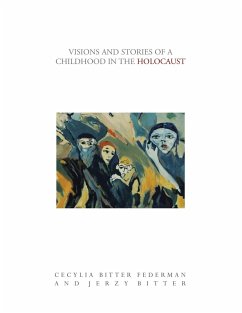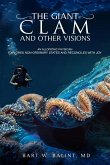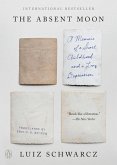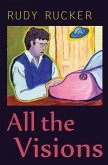Cecylia Bitter-Federman was born on July 31, 1912, in Przemysl, Poland. From 1933 to 1939 she organized vocational schools for girls and in 1939 ran from the German-occupied part of Poland to Lvov, which had been taken by the Russians. There she met and married Marek Bitter. In 1941, their son Jerzy was born. In June of that year, the Germans conquered this part of the country and the family was relocated to an old Jewish quarter and later from Lvov into the Warsaw Ghetto. In the summer of 1942, during the mass deportation of Jews, Cecylia ran with her child to the Aryan side where he was taken in by a Christian family. She later found work as a maid and was reunited with her child. In 1944 the city was evacuated and they settled in Wieliczka, near Cracow. In 1945 they were liberated and reunited with Marek Bitter, who had survived the concentration camp Majdanek. Together the family returned to Warsaw. In 1947, Cecylia was awarded a grant by the National Council of Jewish Women to study in the United States. Upon her 1948 return to Poland she began a career in research and in 1965 earned a Ph.D. in economics. Her two books and numerous articles were published before she left Poland. In 1967 she married Simon Federman and settled permanently in the United States in 1968. Now again a widow, she lives in New York near her son Jerzy, an artist, and her granddaughter. Jerzy Bitter (Yurek) was born in April 1941 in Lvov, Poland and was one of only a handful of Jewish children to survive the Warsaw Ghetto. Although his parents survived, the Nazis killed his grandparents, aunts, uncles, and cousins. In 1965 he received an MS in chemistry from Warsaw Polytechnics and went to Israel to continue his studies, but in 1967 he met with a motorcycle accident. This left him partially paralyzed and in despair. Seizing upon the brutal war memories and learning to use art as a way of expressing his feelings, Jerzy enrolled in the Art Students League and New York University and in 1975 received a master's degree in fine arts. His striking visionary paintings have been shown in the United States, Canada, Poland, Israel, Holland and Italy and are in the permanent collections of the Yad Vashem Museum in Jerusalem and the U.S. Memorial Holocaust Museum.
Hinweis: Dieser Artikel kann nur an eine deutsche Lieferadresse ausgeliefert werden.
Hinweis: Dieser Artikel kann nur an eine deutsche Lieferadresse ausgeliefert werden.








